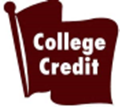CTE - Pre-Engineering

|
Introductory Course for this Pathway
|
|
Introduction to S.T.E.M. 1020 1 Credit Grade 9 & 10 This one-semester course provides a sampling of topics covered in our STEM programs as well as foundational STEAM topics. There are six areas of focus which include mechanical engineering, civil engineering, manufacturing engineering, electrical engineering, robotics, and architecture. A major strength of the course is its emphasis on hands-on experience, teamwork, and problem-solving. To achieve this, students follow the engineering design process in a sequential order starting with basic design and going all the way to model fabrication. Prerequisite: none |

Engineering Design I 1725
2 Credits Full-Year Grades 10-12
Students in this class develop their design skills as the first step of engineering. These concepts begin with focus on using engineering graphics as the primary means of communication using a variety of CAD software (Solidworks & AutoDesk) packages. The software packages are the same products used by professionals in engineering disciplines such as; mechanical, architecture, civil, and manufacturing. Students will complete a series of individual and project based activities that involve career pathways discovery such as; Mechanical Engineer, Architect, Civil Engineer, CNC Machinist, Design Engineer, and Welder to name a few. These projects revolve around the engineering design process with emphasis on problem solving, brainstorming, criteria generation, decision-making, economics and project management. Projects will be fabricated using the latest rapid prototyping methods such as 3D printing, Laser Cutting, and CNC Machining.Prerequisite: Algebra I
College Credits: College Credit eligible
Industry Recognized Credentials: Solidworks Additive Manufacturing & Solidworks CSWA
 Engineering Design II 1726
Engineering Design II 1726
2 Credits Full-Year Grades 11-12
This course is designed to provide high school students with a comprehensive understanding of engineering principles and practices, with a specific focus on creative robotics design, automated systems and the manufacturing processes. Through a combination of theoretical knowledge and hands-on experiences, students will explore various career pathways in engineering, including safety, robotics, CNC, quality control, quality assurance, LEAN manufacturing, and manufacturing processes. This class is a continuation of the learning and problem solving in Design & Engineering I. It is for students who have an interest or passion for creative problem solving with real-world applications. In class we work in teams with the latest VEX robotics, Dobot Magicians, Roland CNC Machine, and much more. Throughout this course students will be provided with experiential opportunities, these work-based opportunities will help students expand and apply their engineering skills. Opportunities that will also include job shadowing, field trips, professional conferences, and engineering societies to name a few. This course also offers an industry alignment and ELO component for students that meet the requirements. Students will have a paid off campus experience as they rotate through a variety of companies during the Spring semester.Prerequisite: Completion of Engineering Design I with a grade of C+ or better and instructor approval.
College Credits: 6 to 10 Running Start College Credits are available through Manchester Community College for grades 10 - 12.
Engineering & Design II qualifies as the third credit in Science as required for MHS graduation.
|
CTE Work Based Learning 1/2 Credit* 1 Credit* Grades: 11 - 12 Work-Based Learning (WBL) provides advanced CTE students the opportunity to learn about the world of work. Students will develop and enhance essential 21st century workforce skills to become industry-ready. CTE WBL empowers students with real work experience, under the supervision of an approved work-site mentor, and the guidance of their CTE instructor. Advanced CTE classwork is meant to supplement and complement this WBL experience, therefore it is expected that students will attend CTE class when scheduled and complete all work as assigned. Credit will be awarded based on satisfactory evaluations from their site supervisor, participation in seminars, completion of related assignments & the number of verified WBL hours. The student is expected to meet with the Career Development Specialist regularly during TASC to review work performance goals, timesheets, journal entries, and capstone project. Students will be required to present their approved capstone project to a panel of mentors, Career Development Specialist, and partnering CTE instructor for final evaluation. |
 Qualifies for NH Scholars
Qualifies for NH Scholars  Awards College Credit
Awards College Credit